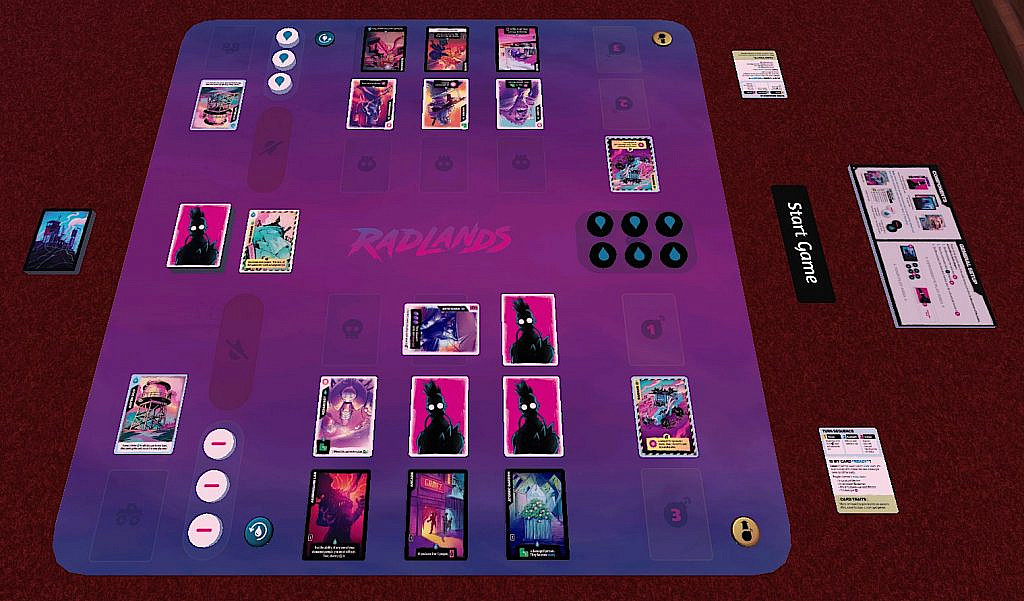Burning engines, barren wastelands, and bruised-up characters are all beloved hallmarks of the Mad Max series. Something about its aesthetics liberates an anarchic and thrill-seeking part of us that doesn’t otherwise get a lot of attention. Many modern games seek to fill this niche (the likes of Rage 2 and Days Gone), but perhaps one of its more interesting iterations is the card game Radlands. Given how rules-guided most board games tend to be, we appear to reach a conflict of concepts that calls for resolution. In simpler terms: is Radlands a good post-apocalyptic game?
In Radlands, two players wage war to destroy the other’s settlement in a constant struggle for survival. This is done by providing each participant with a selection of landmarks standing for the most important parts of their settlement. You get to choose three out of six, ensuring that the ones you get work well together, or at least don’t step on each other’s toes. With your three landmarks, you will be able to deploy two characters in each, who besides offering useful abilities, will block damage, leading to a heavy war-of-attrition style of gameplay that aligns superbly with the theme. First to destroy their opponent’s three camps wins.
Radland’s main draw is in plain sight. It is very straightforward. You can read the game’s rules in ten minutes, and then hit the ground running. I have taught Radlands to a bunch of my friends who could already step up to me, and even if they made some clear mistakes, most of them wanted to go for a rematch. A game of Radlands can take twenty to thirty minutes at most, making sure that playing is fast, and something is always happening. But does the game sacrifice anything to achieve this frenetic pace?
I am delighted to say not much. During your turn, you get three water (truly the most prized resource in the apocalypse) to pay for your cards and effects. Most of your cards are thirsty for activation, so your choices are incredibly critical and quick to make. There is a certain cadence where whoever controls the game can change at a moment’s notice. In this regard, Radlands can sometimes feel quite swingy, given that both players can draw a game-changing card at any point.
Radlands does a lot with little, employing cards to show both health and to play as “punks”, unnamed and expendable grunts.
The simplicity is not exclusive to the gameplay, however. Visually Radlands does a good job of bringing its themes to life with some very stylized comic book illustrations, as well as integrating them with a much more streamlined graphic design that is both clear and sleek.
With all the praise coming this game’s way, one can wonder why it is not more popular. I would venture to guess it stands in a weird spot in the market. On one side, it tries to delve into a very niche topic with its Mad Max themes, but on the other side, it’s a game that in its simplicity lacks a greater amount of strategic depth. Casual players might not be attracted by the grungy characters. Those with a passion for the wastelands will leave Radlands playing a secondary role to other, more complex card games in their collections. Give Radlands a try, especially if you appreciate the theme, but keep in mind the role it will occupy in your game library.
Game Basic Info
- Designers: Daniel Piechnick
- Publisher: Roxley Games
- Release date: 2021
- Number of players: 2
- Playing time: 20-40 minutes
- Ages: 12-14+
Images provided by the author from the Radlands mod on Tabletop Simulator

